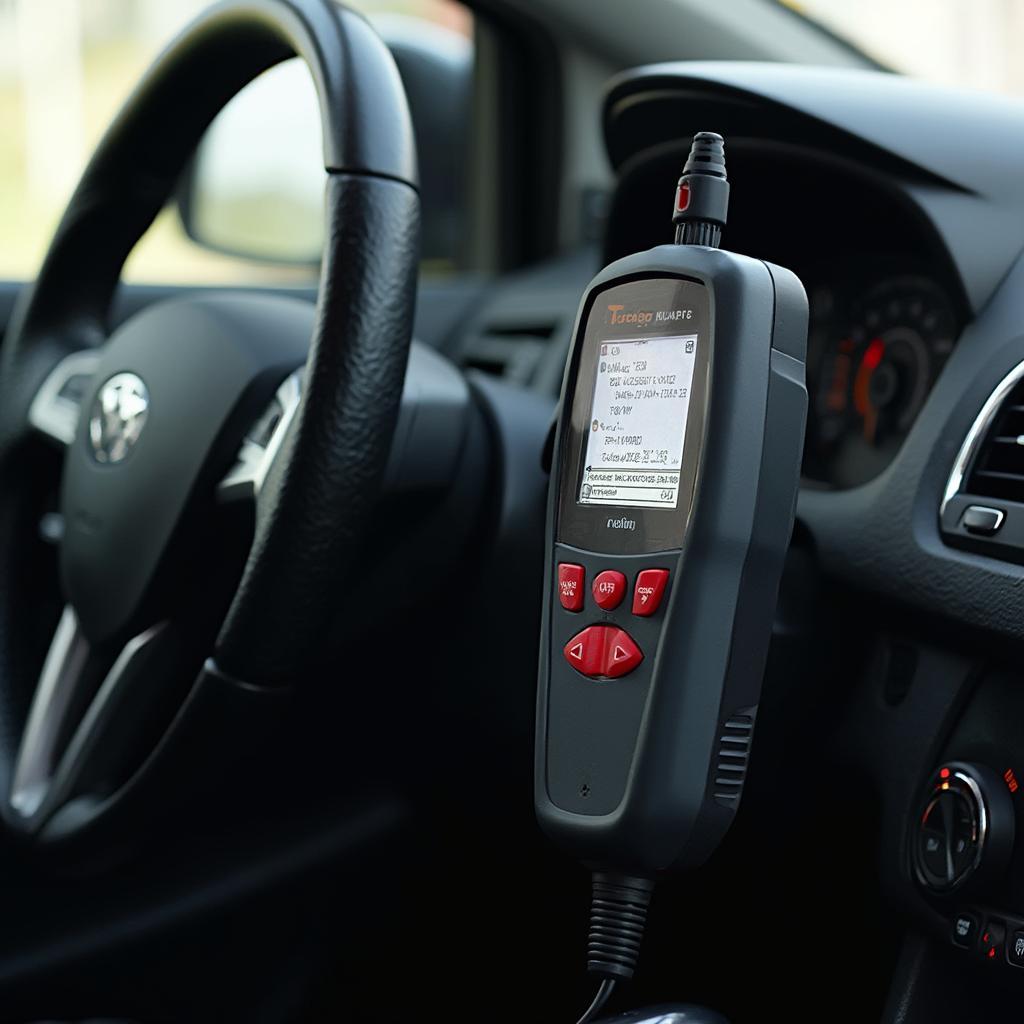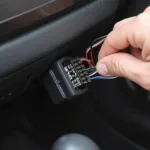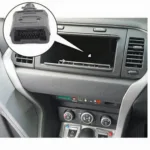Using an OBD2 scanner is becoming increasingly common for car owners wanting to understand and sometimes fix their vehicles. A frequent question we hear at OBDFree is, does an OBD2 scanner void warranty? The short answer is generally no, but like most things related to cars and warranties, the situation is a bit more nuanced than a simple yes or no. Let’s explore this topic in detail to give you a clearer understanding.
Understanding OBD2 Scanners and Their Function
OBD2 scanners are electronic devices that plug into your vehicle’s OBD2 port, allowing you to access diagnostic information about your car’s systems. They can read and clear diagnostic trouble codes (DTCs), monitor live data from various sensors, and in some cases, even perform advanced functions like bi-directional control and coding. Essentially, they offer a window into your car’s computer system. This access empowers car owners to troubleshoot issues, potentially saving money on diagnostic fees at a repair shop.
The Magnuson-Moss Warranty Act and Your Rights
In the United States, the Magnuson-Moss Warranty Act protects consumers from having their warranties voided simply because they used an aftermarket part or device, like an OBD2 scanner. This act essentially states that a manufacturer cannot void your warranty unless they can prove that the aftermarket part or device directly caused the damage.
How Using an OBD2 Scanner Could Affect Your Warranty
While simply reading codes with an OBD2 scanner is unlikely to void your warranty, certain actions taken while using one could potentially cause issues. For example, if you attempt to modify or reprogram your car’s computer using an OBD2 scanner and this action damages the vehicle’s system, the manufacturer could argue that your modification voided the warranty. This is because you directly interfered with the vehicle’s operating system.
“Think of it like this,” says John Smith, ASE Certified Master Technician, “using an OBD2 scanner to read codes is like checking your temperature with a thermometer. It’s simply gathering information. However, trying to reprogram your car’s computer without proper training is like performing surgery without a medical license. It can have serious consequences.”
Protecting Yourself While Using an OBD2 Scanner
To protect your warranty while using an OBD2 scanner, follow these best practices:
- Stick to reading and clearing codes: Avoid using advanced functions unless you have the proper training and understanding of your vehicle’s systems.
- Use a reputable OBD2 scanner: Choose a scanner from a known and trusted brand to minimize the risk of incompatibility or damage.
- Keep records of your scans: Documenting the codes you read and the actions you take can be helpful if a warranty dispute arises.
- Consult your owner’s manual: Your manual will outline any specific warranty limitations related to diagnostic equipment.
- If in doubt, ask a professional: If you’re unsure about using any function on your OBD2 scanner, it’s always best to consult a qualified mechanic.
Conclusion
Using an OBD2 scanner will not void your warranty in most cases, especially when used for reading and clearing diagnostic codes. However, modifying your car’s system improperly through the OBD2 port could lead to warranty issues. By using your scanner responsibly and following the best practices outlined above, you can gain valuable insights into your vehicle’s health without jeopardizing your warranty.
FAQ
- Can using an OBD2 scanner damage my car? Generally, no. Using a reputable scanner and sticking to basic functions like reading codes is safe.
- What should I do if I read a code I don’t understand? Consult your owner’s manual or a qualified mechanic.
- Do all cars have an OBD2 port? Most cars manufactured after 1996 in the US and after 2001 in Europe have an OBD2 port.
- Can I use an OBD2 scanner to turn off my check engine light? Yes, but it’s important to address the underlying issue that caused the light to come on in the first place.
- Are expensive OBD2 scanners better? Not necessarily. The best scanner for you depends on your needs and technical skills.
- Can I use any OBD2 scanner on my car? Most OBD2 scanners work on a wide range of vehicles, but checking compatibility is always recommended.
- What is the difference between reading and clearing codes? Reading codes displays the stored diagnostic information, while clearing codes erases them from the vehicle’s memory.
Common OBD2 Scanner Use Cases and Warranty Concerns
- Checking Engine Light Diagnosis: Using a scanner to diagnose a check engine light is a common scenario and won’t void the warranty.
- Monitoring Vehicle Performance: Tracking live data, like engine RPM or coolant temperature, with a scanner doesn’t affect the warranty.
- DIY Repairs: While using a scanner to guide DIY repairs doesn’t inherently void the warranty, incorrectly performed repairs could.
- Emission Testing Preparation: Using a scanner to ensure your vehicle is ready for emissions testing is acceptable and doesn’t impact the warranty.
Further Reading on OBDFree
- Choosing the Right OBD2 Scanner for Your Needs: This article provides guidance on selecting the most appropriate scanner based on your budget and technical expertise.
- Understanding Diagnostic Trouble Codes (DTCs): This resource explains how to interpret DTCs and what they mean for your vehicle.
For any further assistance, please contact us via WhatsApp: +1(641)206-8880 or Email: [email protected]. We have a 24/7 customer support team ready to help.


